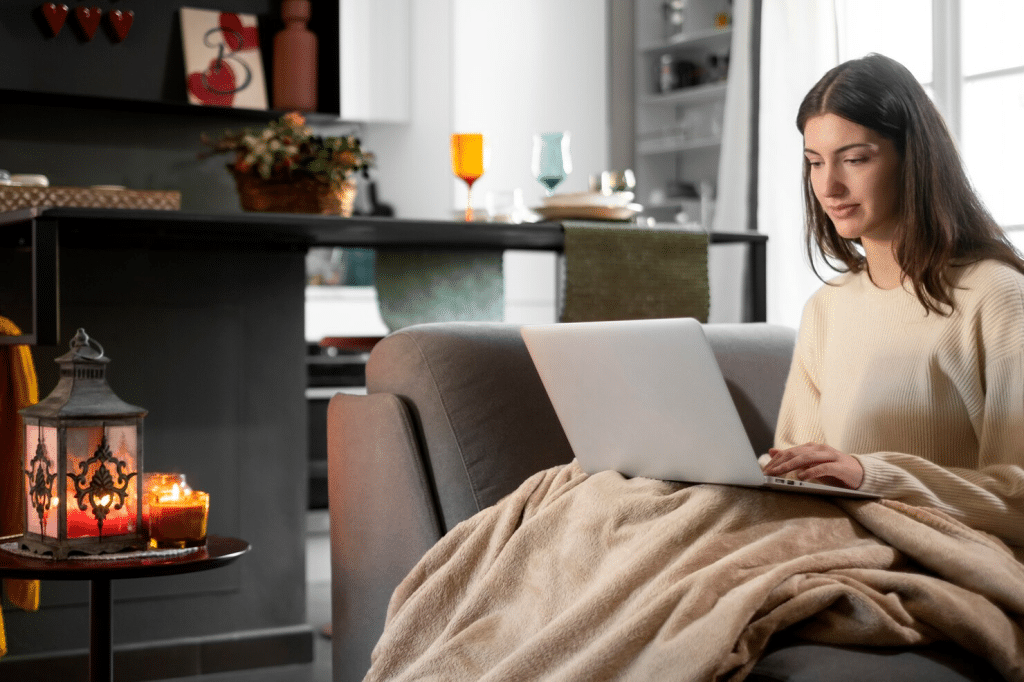Why A Comfortable Home Environment Leads to Greater Focus
Ella Knight August 6, 2025
In the dynamic world of 2025, where hybrid work, digital distractions, and constant demands challenge concentration, a comfortable home environment is a powerful tool for enhancing focus. A well-designed, calming, and functional space reduces stress, minimizes distractions, and creates an atmosphere conducive to deep work and productivity. This article explores why a comfortable home environment boosts focus and provides practical steps to create one that supports your goals.

Why a Comfortable Home Environment Matters
Your home environment significantly influences your mental state and ability to concentrate. In an era of remote work and digital overload, a thoughtfully curated space can counteract chaos, fostering clarity and productivity.
- Reduces Stress: A comfortable space calms the mind, making it easier to focus.
- Minimizes Distractions: An organized environment limits interruptions, supporting sustained attention.
- Enhances Productivity: A functional setup streamlines tasks, boosting efficiency.
How a Comfortable Home Environment Improves Focus
A well-crafted home environment optimizes your physical and mental space, creating ideal conditions for concentration. Here’s how it works:
1. Reduces Stress and Mental Clutter
A cluttered or uncomfortable home can elevate stress, scattering your focus. A soothing environment with calming elements lowers anxiety, allowing you to concentrate more effectively.
- Why It Works: A tidy, aesthetically pleasing space reduces cortisol levels, promoting mental clarity.
- Example: A clean desk with soft lighting can make work feel less overwhelming.
- Pro Tip: Incorporate calming colors like blues or greens to enhance relaxation.
2. Minimizes Distractions
A disorganized or chaotic home environment invites distractions, from misplaced items to visual noise. A comfortable, organized space keeps your attention on the task at hand.
- Why It Works: Fewer visual or physical interruptions help maintain a state of flow, essential for deep focus.
- Example: A dedicated workspace free of clutter prevents you from getting sidetracked by unrelated items.
- Pro Tip: Keep only essential items in your work area to limit distractions.
3. Supports Physical Comfort
An ergonomic and comfortable setup reduces physical strain, allowing you to focus longer without discomfort or fatigue.
- Why It Works: Proper seating, lighting, and temperature support sustained cognitive effort by minimizing physical distractions.
- Example: An adjustable chair and good lighting prevent back pain and eye strain during long work sessions.
- Pro Tip: Invest in an ergonomic chair or desk to optimize physical comfort.
4. Fosters Motivation and Productivity
A home environment that feels inviting and personalized inspires you to engage with your work, boosting motivation and focus.
- Why It Works: A space that reflects your personality and goals creates a positive association with work, enhancing productivity.
- Example: Adding a plant or inspiring artwork to your workspace can make it more motivating.
- Pro Tip: Include one or two personal items, like a photo or memento, to make the space feel uniquely yours.
Practical Steps to Create a Comfortable Home Environment
Building a focus-enhancing home environment requires intentional design and small, sustainable changes. Here’s how to start:
1. Declutter Your Space
Remove unnecessary items to create a clean, distraction-free environment that supports focus.
- How to Do It: Sort items into keep, store, or discard categories, focusing on your primary workspace.
- Example: Clear your desk of papers, keeping only your laptop, a notepad, and a pen.
- Pro Tip: Spend 10 minutes daily tidying one area to maintain a clutter-free space.
2. Optimize Your Workspace
Set up a dedicated, ergonomic workspace with proper lighting, seating, and organization to enhance comfort and focus.
- How to Do It: Choose a quiet area, invest in an adjustable chair, and ensure good lighting (natural or soft artificial).
- Example: Position your desk near a window for natural light and use a lamp for evening work.
- Pro Tip: Use cable organizers or storage bins to keep your workspace tidy and functional.
3. Incorporate Calming Elements
Add elements like plants, soothing colors, or soft textures to create a relaxing atmosphere that supports mental clarity.
- How to Do It: Place a small plant, use neutral or calming wall colors, or add a cozy rug.
- Example: A potted plant on your desk can reduce stress and improve air quality.
- Pro Tip: Choose low-maintenance plants like succulents to add greenery without extra effort.
4. Minimize Digital Distractions
Create a tech-friendly yet controlled environment by setting boundaries for device use to maintain focus.
- How to Do It: Keep non-essential devices out of your workspace or use app blockers during work hours.
- Example: Store your phone in another room during focus sessions to avoid notifications.
- Pro Tip: Use tools like Freedom or StayFocusd to limit distracting websites.
5. Reflect and Adjust Weekly
Spend 10–15 minutes each week evaluating how your home environment impacts your focus and making small tweaks to improve it.
- How to Do It: Journal about what elements in your space helped or hindered focus and plan one improvement.
- Example: If clutter crept back, schedule a quick decluttering session for the next week.
- Pro Tip: Use an app like Notion to track reflections and environmental changes.
Sample Routine for a Focus-Enhancing Home Environment
Here’s a sample routine to inspire your practice:
- Daily:
- Morning (5 minutes): Tidy your workspace and ensure it’s free of distractions.
- Evening (5 minutes): Reset your space by clearing papers and organizing tools for the next day.
- Weekly:
- Sunday (15 minutes): Reflect on how your environment supported focus and plan one improvement, like adding a plant.
- Monthly:
- First Sunday (20 minutes): Review your space’s impact on productivity and set a goal to enhance one area, like lighting.
Overcoming Common Challenges
- Challenge: Limited space for a dedicated workspace.
Solution: Use a small corner or portable desk and keep it clutter-free to maximize focus. - Challenge: Distractions from family or roommates.
Solution: Set clear boundaries during work hours and use noise-canceling headphones. - Challenge: Difficulty maintaining a tidy space.
Solution: Create a daily 5-minute tidying habit to prevent clutter buildup.
Tools to Support a Comfortable Home Environment
- Organization Tools: Storage bins, cable organizers, or desk trays for a tidy workspace.
- Ergonomic Furniture: Adjustable chairs or standing desks for physical comfort.
- Calming Elements: Plants, soft lighting, or noise machines for a soothing atmosphere.
- App Blockers: Freedom or StayFocusd to limit digital distractions.
The Bigger Picture: Focus in 2025
In 2025, with hybrid work and digital overload shaping daily life, a comfortable home environment is a critical asset for maintaining focus. It reduces stress, minimizes distractions, and fosters productivity in a world that pulls your attention in many directions. By optimizing your space, you create a foundation for clear, focused work.
Conclusion: Focus Through Comfort
A comfortable home environment leads to greater focus by reducing stress, minimizing distractions, and enhancing productivity. Declutter your space, optimize your workspace, and incorporate calming elements to support concentration. Reflect weekly to refine your environment. In a busy world, a well-designed home is your key to staying sharp and productive. Start today, and watch your focus flourish.
References:
Ulrich, R. S. (1984). View through a window may influence recovery from surgery. Science. https://science.sciencemag.org/content/224/4647/420
McMains, S., & Kastner, S. (2011). Interactions of top-down and bottom-up mechanisms in human visual cortex. Journal of Neuroscience. https://www.jneurosci.org/content/31/2/587
Roster, C. A., et al. (2016). The dark side of home: Clutter and psychological well-being. Journal of Environmental Psychology. https://www.sciencedirect.com/science/article/abs/pii/S0272494416300659
Newport, C. (2016). Deep Work: Rules for Focused Success in a Distracted World. Grand Central Publishing. https://www.hachettebookgroup.com/titles/cal-newport/deep-work/9781455586691/







